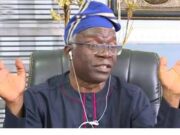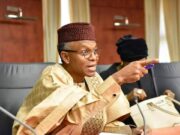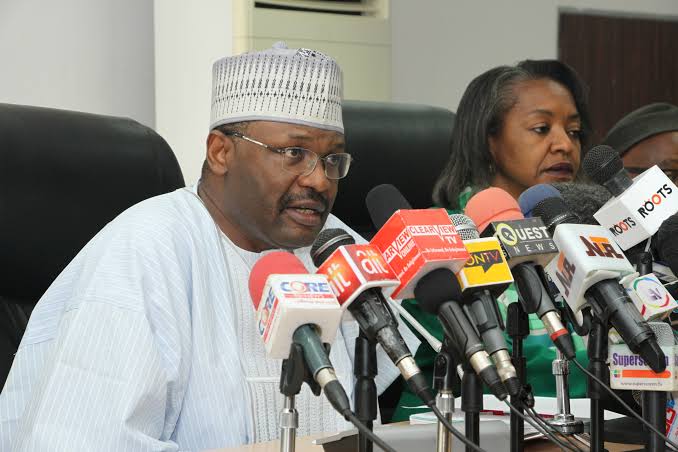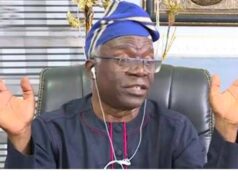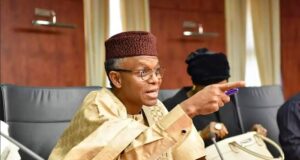As Nigeria approach the 2027 general elections, many citizens have expressed a lack of confidence in the Independent National Electoral Commission (INEC) to conduct a free and credible poll.
Despite INEC Chairman, Professor Mahmood Yakubu, attending the recent elections in Ghana widely praised for their transparency and fairness, Nigerians remain skeptical about the ability of INEC to replicate such success.
Ghana’s election was celebrated for its smooth operation, with no reports of electoral manipulation, ballot box snatching, or delays in result transmission.
This stood in stark contrast to Nigeria’s 2023 general elections, which were marred by allegations of electoral malpractice, manipulation, and logistical issues.
When Professor Yakubu returned from Ghana, he attributed their success to lessons learned from Nigeria, a statement that left many Nigerians shocked and disillusioned.
Many believe that INEC has not demonstrated the capability to conduct a credible election in the coming years, especially after failures in off-cycle elections such as those in Edo and Ondo.
There are widespread calls for urgent reforms to ensure that the electoral body is free from political influence and can conduct a transparent election in 2027.
Professor Benjamin Okaba, President of the Ijaw National Congress (INC), emphasized that Ghana’s electoral body provides a model that Nigeria must strive to emulate.
He stressed the need for crucial reforms in Nigeria, including securing INEC’s independence, overhauling electoral laws, ensuring the enforceability of laws like the mandatory use of the Bimodal Voter Accreditation System (BVAS), and immediately transmitting results to INEC’s portal.
Okaba also highlighted the importance of fostering internal democracy within political parties and leveraging technology to modernize voter registration and result transmission.
He argued that reforms must ensure the proper use of security agencies, focusing on non-interference in the voting process.
Zik Gbemre, Coordinator of the Niger Delta Peace Coalition, similarly criticized INEC’s lack of progress since the 2023 elections.
He pointed out that despite improvements like the Results Viewing Portal (IREV), the credibility of the results uploaded on the system was questionable. Gbemre stated that the true issue lies not in the absence of laws but in the failure to enforce them and the impunity surrounding electoral malpractice.
He called for more stringent measures against election offenders to deter future violations.
Public commentator, Emmanuel Kuejubola also weighed in, arguing that INEC’s lack of willpower and the interference from the executive arm of government undermine the process.
Kuejubola noted that the system was rife with political influence, which rendered the implementation of electoral laws ineffective.
He urged Nigerians to unite in their demand for credible elections, irrespective of ethnic or religious considerations.
Hon. Stephen Adewale, a former chairman of the Social Democratic Party (SDP) in Ondo, suggested that while there is still time for INEC to reform, the current challenges make a credible election in 2027 uncertain.
He called for the presidency to ensure INEC’s autonomy, reduce political interference, and strengthen the Electoral Act to provide clear guidelines for party primaries, voter registration, and election dispute resolution.
Adewale also stressed the importance of enhancing security at polling units and intensifying voter education.
Looking at Ghana’s electoral success, analysts argued that Nigeria could potentially conduct even more credible elections if it draws lessons from its neighbor.
Ghana’s success, attributed to a robust legal framework, impartiality, and technology-driven processes, has set high expectations for Nigeria’s electoral future.
To achieve this, reforms are necessary to ensure INEC operates independently from political forces and that there are no compromises in the voting process.
For INEC to improve, stakeholders suggested transparency in the appointment of commissioners, financial autonomy for the commission, and clear consequences for electoral offenders.
The use of technology for voter registration, result transmission, and monitoring must be expanded, and new practices like voting by proxy and diaspora voting should be explored.
Charles Tejiri, an activist, acknowledged the challenges of achieving credible elections in Nigeria due to ethnic and religious divisions, but urged Nigerians to continue advocating for transparency.
He suggested that only through a determined and unbiased INEC leadership, free from political manipulation, could credible elections be possible.
Some experts, like Surv. Furoebi Akene of the Centre for Environmental Preservation & Development (CEPAD), believe that INEC is capable of conducting credible elections, but it is hindered by systemic corruption and interference from political elites.
Akene emphasized the importance of addressing these issues and fostering a culture of responsible citizenship to improve the electoral process.
Saviour Akpan, Executive Director of the COMPPART Foundation for Justice and Peace Building, concluded that Nigeria has the potential to conduct a more credible election than Ghana if its citizens demand it.
He stressed that electoral integrity begins with citizens who are willing to speak truth to power and uphold the values of participatory democracy.



